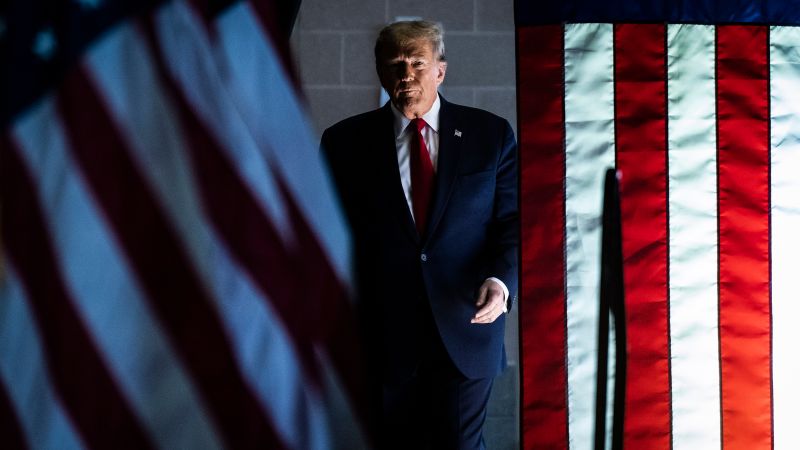One of Donald Trump’s main mottos during his electoral rallies has been to “fight the deep state.” During his entire campaign, Trump claimed that an invisible political entity within government (i.e. the deep state) was working against citizens.
In actuality, this phantasmic presence is not Donald Trump’s idea of a “deep state,” but is composed of public federal agencies, such as the Federal Drug Administration (FDA).
The federal “deep state” is a network of civil servants dedicated to evidence-based decision-making, in most cases tasked with protecting the interests of the American public. These nonpartisan professionals are entrenched in the regulatory system and operate under strict procedural safeguards, making it difficult for political appointees to make arbitrary changes without due process.
Trump’s conspiratorial “logic” poses a serious threat to the autonomy of America's public-health agencies, particularly given the desire of Trump and his advisors to dismantle what they see as the federal bureaucracy.
For instance, Donald Trump’s backed health advisor Robert F, Kennedy, Jr.’s "Make America Healthy Again" mission, which includes a radical overhaul of regulatory bodies like the FDA and challenging their oversight on everything from vaccines to food standards. Ironically, the FDA—comprising the very experts Trump has derided—remains essential for any policy success. As Trump pursues his agenda, his ability to sidestep procedural and institutional roadblocks will be a defining test for America’s regulatory resilience and the integrity of its public health agencies.
Moreover, Trump’s win signals a fundamental misunderstanding on his part: the federal public agencies are not the “deep state” that deserve surveillance. Rather, there is a deep state now in creation, where the top economic percentile of the population, despite little relevant expertise, is poised to take leadership of the country under Donald Trump.
People like Joe Rogan and Elon Musk joined and assisted the Trump communication machine, and Musk eventually gave the Donald’s campaign massive financial assistance. Their raw and demagogic attitude won the attention and vote of most US citizens and seemed to have had a pivotal role in the election ”swing states” that were critical to Trump’s election. This new and real “deep state” now represents America. It is made up primarily of the “flyover states” in the central U.S., the population of which have a strong anti-establishment feeling and falsely see a bunch of billionaires as their saviors in subverting Washington.
When Trump first entered office in 2016, he sparked a defensive reaction from the political system. As an outsider, he was seen as a disruptive force, and the state apparatus responded instinctively to reestablish balance. But now in 2024, the American system is severely strained. The federal deficit is spiraling out of control, with government debt nearing $36 trillion—starkly contrasting with Russia's $288 billion and decreasing debt. Interest payments alone now exceed the entire annual defense budget, and debt servicing costs are approaching a quarter of federal revenue, highlighting the gravity of the crisis. Will the wealth of the real deep state leaders be at all helpful in reversing the trend of the U.S. crisis? Or will they use federal agencies as a scapegoat, asking for their removal in order to fund tax cuts that serve their own interests? If their choice falls to the latter, while their anti-establishment dream may in some sense be realized, the deficit will not be addressed and there will be no one left to run the country.
The New Statesman recently offered a provocative historical analogy: a weakened “deep state” does not necessarily create an easy path for Trump—or anyone—to control. Instead, it could render the state fundamentally uncontrollable. Previous superpowers faced similar crises. In 1789, on the eve of its Revolution, France’s economy and military were collapsing. But even then, France’s debts and deficits paled next to America’s today. Nor was it attempting to sustain a global military presence, with bases, command centers and nuclear assets.
Though France’s problems were on a smaller scale, it faced gridlock, unrest, and ultimately revolution, as its rudimentary deep state had ceased to function. France could neither advance nor retreat, and it was powerless to reform.
America may now be facing a similarly stark choice.




